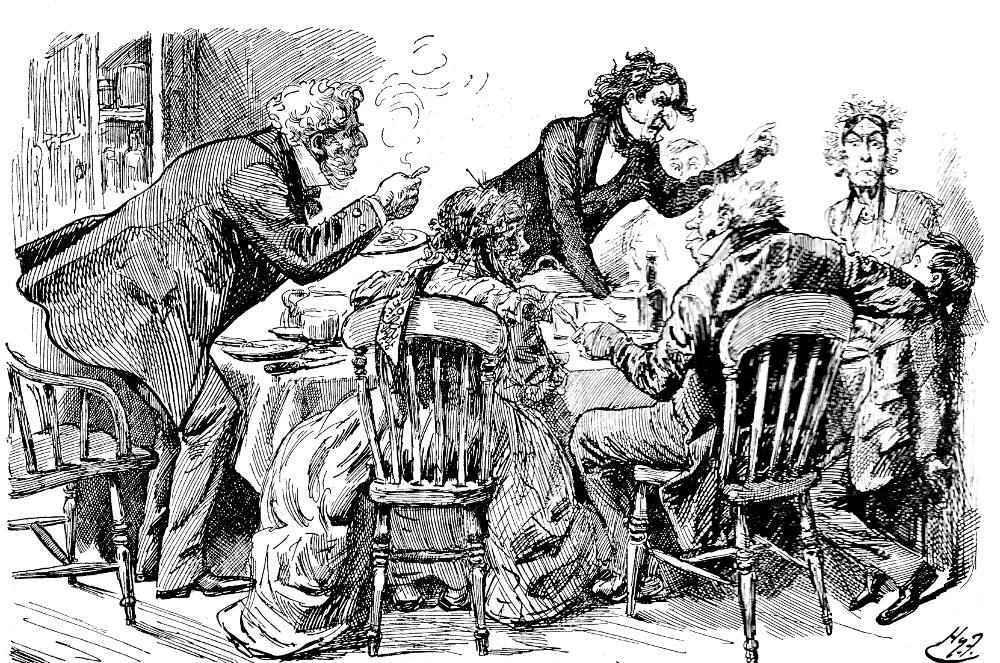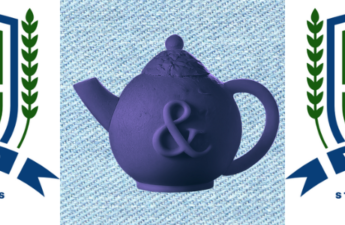
I wrote this bit of a rant in late 2018. It’s time for it to have a public airing. And then time for a pandemic era update.
“Have a nice day” Perhaps the most reasonable and polite response is: “Thanks but I have other plans.”
The positive psychology industry acquired a loud new division in the last few years. Moving on from mindless mindfulness, and grit,(see also here and here) we now have the explosion of gratitude.
It’s everywhere, and of course, it has infected education. (Just check out the number of references in blogs and articles on the NAIS website. Or plug the word into the intertubes and drown in all the gratitude people seem to have for their expensive vacations, time at the beach, their beautiful families, designer dogs, and new kitchenware. We should be grateful for our privilege and entitlement it seems. And expressing all this gratitude makes us happier and more content.
Everywhere we are exhorted to be grateful and to express gratitude and to teach children the power of generic gratefulness.
The Gratitude Industrial Complex
Gratitude, it seems, is good for us. It makes us better leaders, better students, and happier better shinier people. And you can even buy gratitude notebooks in which to record your ongoing gratitude and gratefulness. At least somebody’s making money.
Really? We should be grateful? If that is the case why does it nark and annoy worse than nails on the blackboard (how old-fashioned is that) and set the crap detector jangling?
We should be grateful and be thankful and make sure everyone knows just how grateful we are. Loudly enough to grate on everyone’s nerves until the sane among us want to shout from the chimney tops: “Shut the fuck up already!”
Never mind that perhaps instead of being grateful we should direct some of that energy towards fixing some of the stuff that we are grateful not to be currently suffering from. This soma state of gratitude saps the will and drains the emotional wellsprings that could lead to actually doing something about the things we ignore when we focus on the stuff we are grateful for.
The Thankfulness Arms Race
Let’s take a look at what it’s all about.
Let’s start with the obsession with thanking people. Like anyone, I am pleased when my work or contribution is recognized and appreciated but am I the only one who finds it odd to be constantly thanked for what took no effort and was only to be reasonably expected in the first place?
Could it be actually harmful to keep thanking people for doing nothing, or the bare minimum, or for what they were going to do anyway? This constant excess thanking is more than a minor irritation, it devalues true appreciation for things that really matter. If I am effusively thanked for merely showing up to do my duty, what should I expect to receive for my actual constructive participation?
Yes – it’s good to be recognized and to receive acknowledgment for something out of the way that actually involved a measure of invention, effort, or sacrifice. But to be constantly thanked for showing up undermines motivation. It teaches that we are to be thanked merely for doing the right thing, for existing with complaint.
I don’t need to be thanked for something empty and meaningless that required no effort and that is part of my job and that I was doing anyway for my own satisfaction.
I don’t need to be thanked for showing up to do my duty and carry out my responsibilities.
And when it comes to school, thanking become meaningless if it’s applied to showing up, making no effort, and merely refraining from being a general pain in the ass.
There’s a thankfulness arms race going on. And if this keeps up that we shall have to start thanking people for waking up and getting out of bed.
Gratitude and Resentment
Nobody likes the persistent grouser and grumbler. But surely this perpetual gratitude is just as annoying and to be equally avoided.
The expectation that we all have to be grateful for being alive – that the sun rises. that water is wet, and we are not dead yet – is perverse.
And thanking kids for doing what they already intended to do for their own reasons and purposes and satisfaction robs them of the authenticity of their own actions and motivations. It’s another way we steal from children. An imposed emotion that shuts down what they might have been feeling. Robbing them of their actual instincts, offering an ersatz reward in place of actual satisfaction. A saccharine fix.
We perversely push thankfulness on them. And demand they perform gratitude. It’s the pernicious insistence on mindless and meaningless gratitude when perhaps another emotion might actually be more appropriate.
For the have-nots, it’s the imposition of delusion. Think of the ungrateful hungry Oliver Twist berated punished for asking for enough to eat. And the orphan Pip in Great Expectations, perched miserably on the corner of the Christmas dinner table being lectured on gratitude by the sanctimonious company. As always, Dickens skewers the hypocrisy of coerced and unreasonable expectations of gratitude.

And for the haves – those people of privilege – the performance of gratitude means that perhaps now they/we have performed the appropriate level of gratitude they/we are now no longer under any further obligation to do something about the injustice of their/our unearned privilege.
Having done our duty – and been grateful – we can now relax and accept our place in society without anything to trouble our conscience.
It’s the status quo passivity of it all. Like the old hymn we used to sing at school. Here are verses one and three;
1.
All things bright and beautiful,
All creatures great and small,
All things wise and wonderful,
The Lord God made them all.
3.
The rich man in his castle,
The poor man at his gate,
God made them high and lowly,
And ordered their estate.
And even if you don’t think the distribution of wealth and power is ordained by god – now you have shown the appropriate level of gratitude – you don’t have to do anything to actually fix things. You have been blessed. Be grateful.
What’s actually needed is to switch the state of gratitude (or perpetual discontent and resentment) into something more constructive and active.
Instead of teaching children to be grateful for the people who clean and cook and keep us safe how about teaching them to care that such people are treated fairly, are well paid, and have benefits? And then thank them as well.
Instead of:
“I am grateful I am not confined to a wheelchair and that means I can enter the library without difficulty.”
How about “I am grateful I am not in a wheelchair and I want to make sure that those who are can also access the library.”
And that’s as far as my rant went in 2018.
Time to revisit and update.



I agree with you on the toxic positivity. The pressure to be constantly positive about things is intense, and yet there are things that are negative, and we need to be able to feel the negativity too. There can be no positives without negatives…
On the thankfulness and gratitude thing I differ a bit. I do think that we should take the time to be grateful for what we have – so many people are chasing the next big thing and they never stop to appreciate all the big things they already have…
I guess the answer is balance 🙂 between positivity and negativity, and between duty and gratitude 🙂
Carla Corelli´s last blog post ..Perinatal Depression: What You Need to Know
Performance of all kinds is the norm for our species, but in all things essential proves useless. I find being in true gratitude, however, helps me to do the work of being generous towards others as I live within a state of knowing how much I’ve been given rather than what I am owed. But these attitudes (gratefulness, mindfulness, charitableness) are all inner works. To be advertising that we have them is simply showing our need to be superior, which negates the purpose of developing such true feelings.
Thanks to you too, Josie. It’s really been good to discuss it. Those hashtags indeed!
I look forward to seeing your update. At the moment the US seems to be filled with ungratefulness, resentment, sulking and mindless chatter.
You are so right about that. The public discourse is very rough and raw around the edges these days. For all kinds of reasons including the obvious and the unfathomable
My friend Tim who is also British used to get annoyed with me when we ate out and I kept saying “thank you’ every time something was brought to the table. But it’s the way I was programmed. I think I was always very aware that I was in a place of privilege and it felt unfair. As a child it bothered me a lot. Thanking people just stuck. But I do agree that “gratitude” has gone over the top.
I think we need more of that kind of expression of gratitude – especially for those who work in low-paying jobs to serve our comfort. Of course, they probably also need better working conditions, job security, and benefits. But the least we can do is be appreciative, try not to make their lives harder, say thank you, and leave a solid tip.
Yes, I can relate to much of what you say, although I don’t feel quite as strongly about the industry of gratitude. It isn’t all bad, is it? Confession time – I kept a gratitude diary a few years ago – nothing special, just a plain notebook in which I wrote three things I was thankful for every day. It made me feel less miserable, to be honest (I seem to remember it was a miserable phase of my life). Did it stop me from feeling angry about politics, social injustices, prejudice? Nope. Mindless thankfulness IS silly, of course and, yes, it’s become a ridiculous industry and it’s easy to see it as a means of trying to placate people and trick them into not noticing what is really going on (but few of us are that stupid, are we??). It has become increasingly difficult to know how to express anger and criticism without appearing ‘negative’ – and ‘negative’ here is seen as ‘bad’, whereas ‘positive’ is ‘good’ – and, of course, this isn’t always the case! Personally, I come across a lot of people who never say thank you or express any notion of being thankful, so I’m not ready to ditch all expressions of gratitude just yet! Thanks (no offence intended ;-)) for your rant, it’s a good read.
You are right of course. It’s is all about the balance. And my focus at the time of writing was two-fold: Irritation at being thanked for things I needed no thanks for and the institutional imposition of gratitude on children. Coerced feelings are destructive in that they erode and undermine authentic emotions and they are …well…inauthentic. But it is also important to appreciate what we have and – contradictory curmudgeon that I am – I frequently find myself thankful for all my blessings. And those people who take everything for granted and who are unaware of their privilege and thank no-one for anything – well they are beyond the pale rude, selfish, and often narcissistic. And I am thankful you wrote the comment because you are someone whose work I enjoy and you gave me something to think about.
I was invited to be a gratitude buddy by a friend – and I in turn invited someone else. All of us going through hard times: bereavement, recovering from abuse, PTSD. It means we speak or text every day and that is perhaps the most important thing – both my friends are alone. It doesn’t stop us talking about our problems but we have to look for three things to be grateful for in that one day. Sometimes those are just simple things because we have had a shit time. I agree that being urged to be positive all the time is unwelcome! It’s not the answer to everything. Mindfulness and anything that becomes a ‘thing’ can grate. It’s happening to kindness now too. And that is what bothers me – there’s a gratitude backlash because it feels like it’s forced upon us. An industry grows up around it and that makes my skin crawl. If we have a backlash against kindness because it’s been overdone then we’ll be in real trouble. Think for yourself is what I’m saying I suppose. A very thought-provoking rant indeed!
Of course, you are right. When we are in great distress it is truly helpful to have the support of those who -while validating our feelings and experience – also help provide emotional perspective. Just that supportive presence is positive in and of itself. It’s also true that the expectation of cheerfulness at all costs can be an emotionally damaging denial of reality. I think what really set my teeth on edge with the gratitude fad (apart from the commercialization of it all) was the expectation that children (and adults) should perform – and would benefit from performing – generic gratitude as a way of life. Makes me think of all those times when children are told they have to say sorry when they are not sorry at all.
And you are right on target with the “kindness”. All those aggressive borderline hostile folks on Twitter for example, demanding everyone else accept their version of reality while they have #BeKind in their bios and hashtags.
Please Sir, can have some more?
The whole explosion of the gratitude juggernaut has been amazing to see over the last few years, it seems to have overtaken the ersatz mindfulness complex. You make some really interesting points about of the larger effects and what the underlying message is. A simpler drawback is that it cheapens true gratitude and its expression.
Mindless mindfulness, grit, gratefulness, and now #BeKind. Of course, we should all value thoughtfulness, persistence, gratitude, and kindness. And politeness and civility matter and should be routine habits in our daily interactions. But no one should have to perform ritual acts of inauthentic emotion. And demanding them of children is harmful.
Anyway – your comment is on target and thank you.
“All talk and no deeds” is all too in evidence today in American politics, where there appears to be little or no EFFORT being made to stop Trump and his cohorts from turning this country from a democracy into an autocracy (or worse). I hope there is something being done behind the scenes to prove me wrong….otherwise, will pay a very high price for our delusion.
Hi mistermuse – wondering whether the words of this week have given you are any comfort and encouragement. I think we are all looking for some action (as in indictments!) in response to treason, insurrection, and sedition!
Your comment brings to mind the scene in “Julius Caesar) where Brutus and Cassius confront Octavius and Mark Anthony before the final battle at Philippi,
BRUTUS Words before blows: is it so, countrymen?
OCTAVIUS Not that we love words better, as you do.
BRUTUS Good words are better than bad strokes, Octavius.
ANTONY In your bad strokes, Brutus, you give good words:
Witness the hole you made in Caesar’s heart,
Crying ‘Long live! hail, Caesar!’
CASSIUS Antony,
The posture of your blows are yet unknown;
But for your words, they rob the Hybla bees,
And leave them honeyless.
ANTONY Not stingless too. 35
BRUTUS O, yes, and soundless too;
For you have stol’n their buzzing, Antony,
And very wisely threat before you sting.
Not directly relevant. Or useful. But it’s what came to mind!
Cheers!
Very thought-provoking, Josie!